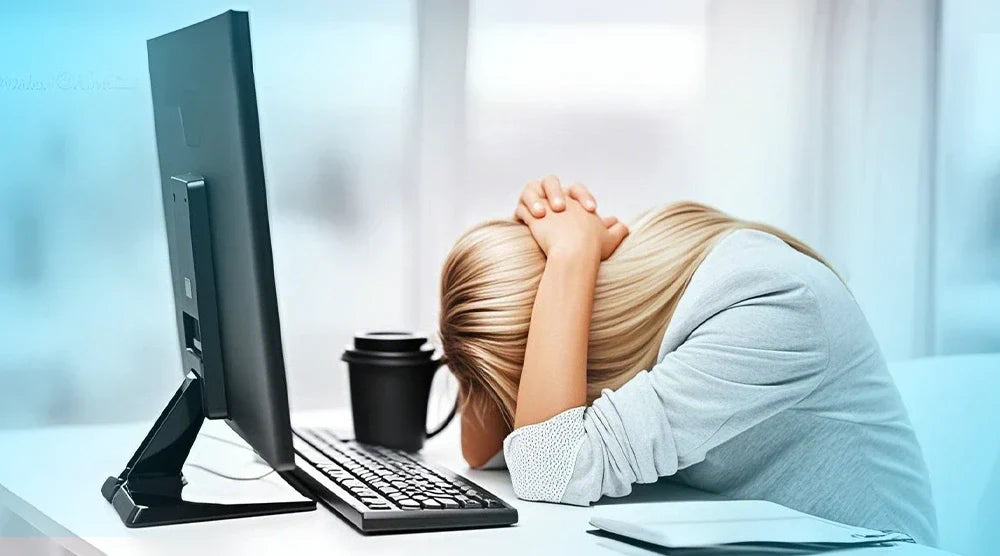Every PC owner fears that moment when his computer starts to slow down. Slow booting, frustrating lagging when performing multiple tasks simultaneously, and sluggish application loading can make even the most ordinary tasks a chore.
If you're experiencing such typical issues, it's time to take action!
In this blog, we will tackle real-life solutions on how to speed up your PC and restore the fast performance you used to have.
Why Do PCs Slow Down?
Over time, many factors can make PC performance decline. These are some of the usual culprits you'll be dealing with:
-
Aging Hardware: As technology advances, older hardware will fall behind newer software requirements.
-
Bloated Software: Installing numerous programs, especially running in the background, eats up memory and processing space.
-
Lack of Maintenance: Failure to undertake routine maintenance will lead to an accumulation of unnecessary files, thereby slowing down your PC.
Identifying whether the slowdown is caused by software or hardware is crucial for applying the right solution. Some issues can be resolved with simple adjustments, while others may require a hardware upgrade.
How to Speed Up Your PC: 10 Simple Fixes
Here are ten excellent solutions to boost computer speed and overall performance.
1. Uninstalling Unnecessary Programs
Begin by cleaning up your system. Windows through your installed applications and uninstall any that you do not require. This basic process releases valuable memory and processing power.
2. Disable Startup Applications
The majority of programs are set to load upon booting, which in turn slows down boots. Go to your Task Manager (Ctrl + Shift + Esc), go to the Startup tab, and disable programs you do not necessarily need to run right away.
3. Clean Up Your Hard Drive
Your computer has native disk cleanup software that enables you to remove temporary files and free up space. Run these tools frequently to prevent junk from piling up increasingly.
4. Switch to an SSD
If you still have a legacy HDD, a move to a Solid State Drive (SSD) will significantly improve read and write performance. This technology can significantly improve system boot time and opening apps.
5. Install More RAM
Is your computer getting slower when you have multiple programs running simultaneously? Installing more RAM on your machine will allow it to multi-task. This may require technical know-how, and it might therefore be best to have a professional install it.
6. Update Operating System and Drivers
Companies continually roll out performance updates and make your computer more compatible. Updating your drivers and operating system will keep your PC running smoothly.
7. Run Malware and Virus Scans
Viruses and malware are security threats that eat away at your computer's performance. Run a good antivirus software and run regular scans to clear out any threats that would weigh it down.
8. Turn off Visual Effects
Windows provides several visual effects that consume expensive resources. Disable unnecessary animation and effects and you can accelerate your experience by visiting System Properties and selecting "Adjust for best performance."
9. Defragment Your Drive (for those who own HDD)
For anyone still working with a Hard Disk Drive (HDD), a defragmentation program run can reorganize fragmented files for quicker retrieval. But if you're working on an SSD, no need to worry since SSDs operate differently.
10. Reinstall Windows
If your computer still runs slow despite all the efforts, an absolute fresh start in the form of a Windows reinstall can be a savior. This clean slate erases years' worth of digital rubbish, rejuvenating your system.
When to Consider a Hardware Upgrade
Even after using software fixes, performance issues can sometimes continue due to hardware limitations. Signs that it’s time for a hardware upgrade include constant lag, frequent crashes, and the inability to run modern software smoothly. If you're unsure, it's wise to consult professionals like Technoid Inc. for expert advice.
Consider upgrading components such as your SSD, adding more RAM, or installing a better graphics card to significantly boost your system’s speed and overall performance.
Final Thoughts
Your PC doesn’t have to stay slow. By following these simple yet effective fixes, from uninstalling unnecessary programs to upgrading outdated hardware, you can dramatically improve your computer’s speed and responsiveness.
Whether you’re trying to reduce lag, speed up boot times, or handle multiple tasks more efficiently, these solutions offer a solid starting point.
But if you’ve tried everything and your PC still struggles, don’t go it alone. Technoid Inc. is here to provide expert support and build high-performance custom PCs tailored specifically to your needs.
FAQs
Q1: What programs should I remove?
A: Remove programs you don't use frequently, games you've finished, or some utility with redundant functions of some installed application by you.
Q2: Does too many browser tabs opening slow the PC?
A: Yes, every open tab uses resources and memory, which slows the system overall.
Q3: Is defragmenting an SSD safe?
A: Yes, but it doesn't make a big difference.
Q4: Is defragging good for SSD?
A: No, defragging an SSD reduces its lifespan and is unnecessary, as SSDs manage data automatically efficiently.

 United States
United States

